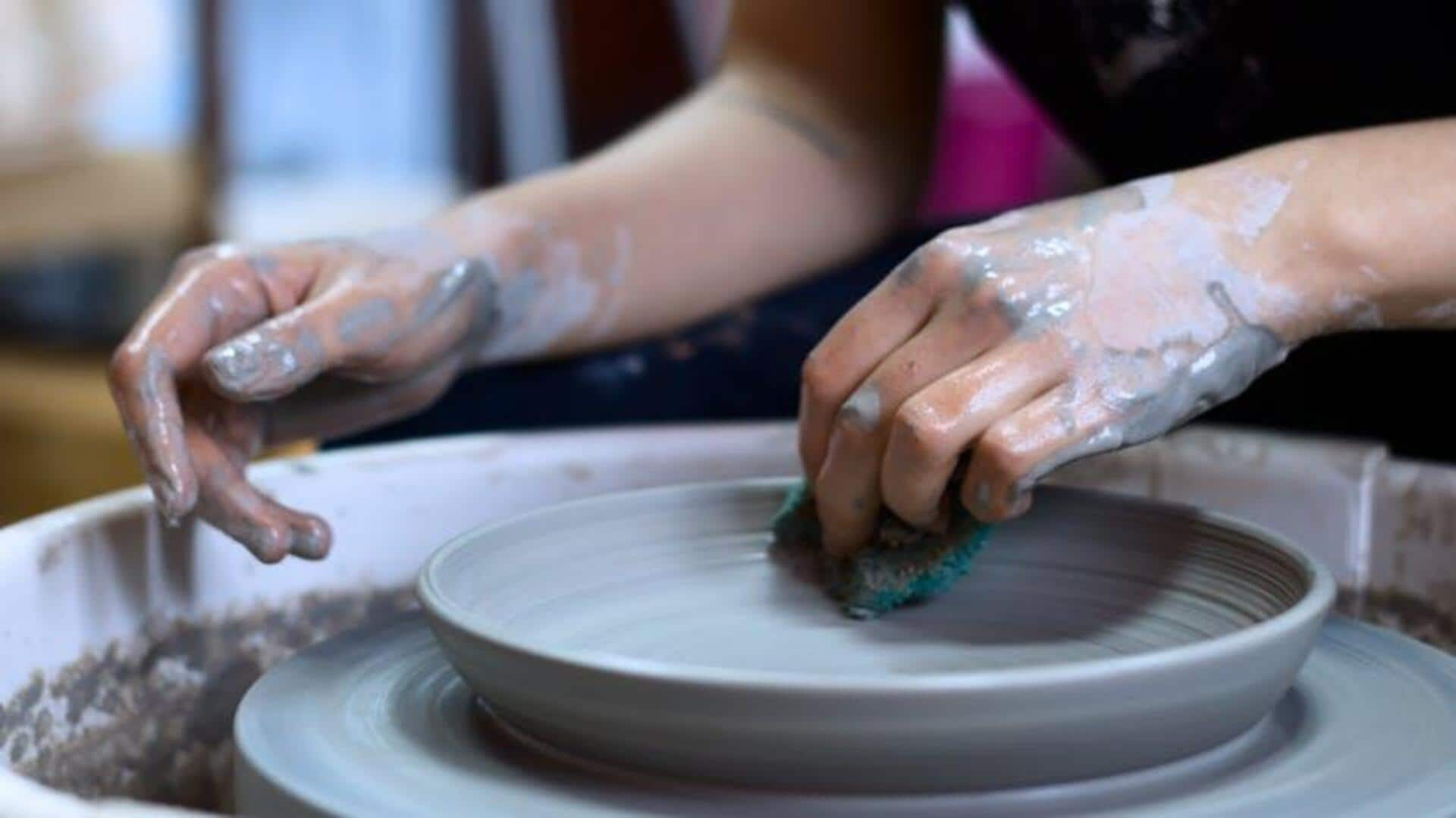
Etiquette for pottery workshops
What's the story
Taking a pottery and ceramics workshop is a lot of fun and a great way to learn or improve a skill. But, like anything else you do with other people, there are some unwritten rules about how you should act so everyone can have a good time and feel respected. This article covers the most important things you should know about etiquette for pottery and ceramics workshops.
Attire
Dress appropriately
Choosing the appropriate attire for a pottery workshop is essential. Wear old clothes that you aren't concerned about staining. Clay can be messy and might not always come out in the wash. Closed-toe shoes are also important for safety reasons. This will help prevent injuries from sharp tools or heavy objects that might be dropped on your feet.
Cleanliness
Respect shared spaces
Pottery studios have communal spaces and equipment like wheels, worktables, and glazing areas. You need to clean up after yourself when you're finished using these spaces. This means wiping down surfaces, putting tools back where they belong, and throwing away any trash or waste appropriately. Leaving the space clean means the next person can get started on their project right away, without having to clean up after you first.
Courtesy
Be mindful of others' work
In a communal workshop environment where everyone's projects are on display, it's crucial to respect the space and work of others. Refrain from touching or moving someone else's pieces without asking. They might be in different stages of drying or curing and could be easily damaged. If you like someone's work, praise them, but also let them be.
Sharing
Share resources fairly
In workshops, resources like clay, glazes, and equipment such as pottery wheels are often limited. It's important to be mindful of your usage and considerate of others. If there are only three wheels, don't hog one all day! Everyone needs a chance to practice. And with materials, don't be greedy! Take a modest portion unless the instructor says there's enough to go around. This way, everyone gets a fair shake.
Guidance
Ask before offering help or advice
Although you might feel inclined to provide unsolicited advice or assistance to your co-workers, particularly when observing them facing difficulties or committing a seemingly obvious error, it's always good to first ask them if they are open to receiving help or suggestions before providing it. Some individuals might welcome the assistance, while others may enjoy the process of learning from their mistakes independently.